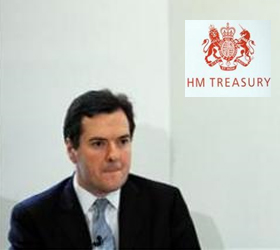 (Reuters) – The coalition government’s June budget will hit the poor hardest, the Institute of Fiscal Studies said on Wednesday, contradicting Chancellor George Osborne’s assertion that his plans are progressive.
(Reuters) – The coalition government’s June budget will hit the poor hardest, the Institute of Fiscal Studies said on Wednesday, contradicting Chancellor George Osborne’s assertion that his plans are progressive.
The IFS report is likely to prove embarrassing for the Conservative/Liberal Democrat coalition and make it harder to build public support for planned spending cuts of 25 to 40 percent that unions say will cost hundreds of thousands of jobs.
Lawmakers from the LibDems are already having a tough time selling the budget to grassroots supporters. The IFS assertion that low-income working-age people will suffer the most will not make it any easier.
“Once all of the benefit cuts are considered, the tax and benefit changes announced in the emergency Budget are clearly regressive as, on average, they hit the poorest households more than those in the upper-middle of the income distribution in cash, let alone percentage, terms,” the IFS said.
Low-income households of working age lose the most as a proportion of income from the tax and benefit changes. Those who lose the least are households of working age with no children in the top half of the income distribution, according to the IFS.
TREASURY REJECTS ANALYSIS
The Treasury said it did not accept the think-tank’s analysis, saying it ignored the effects of people who would come off benefits and go into work.
“It is selective, ignoring the pro-growth and employment effects of Budget measures such as helping households move from benefits into work, and reductions in corporation tax,” a spokesman said.
“It is essential that policy is informed by transparent analysis: That’s why we stand full-square behind our budget analysis which is based on what can accurately and completely be measured.”
The IFS is an independent body that also was a thorn in the previous Labour government’s side because of its outspoken judgements on the public finances. In opposition, Osborne frequently cited the IFS’s findings and its head, Robert Chote, has frequently been tipped to head Britain’s new quasi-governmental Office for Budget Responsibility.
Osborne produced the harshest budget in a generation a month after the Conservative/LibDem coalition took office, promising to cut an 11 percent budget deficit to nearly nothing in five years through hefty spending cuts and tax increases.
He said in his budget speech that the proposed fiscal measures were “progressive” and supplied analysis which showed the distributional effect of tax and benefit changes up to 2012-2013 would hit the rich more than the poor.
The independent and influential IFS said it had always doubted the claim as the bulk of the measures likely to hit the better-off had come from plans set out by the previous Labour government.
Labour Treasury spokesman and former Chancellor Alistair Darling said: “Just last week George Osborne told us that his budget was ‘fair.’ But it’s decisions, not warm words, that count.” – Reuters











